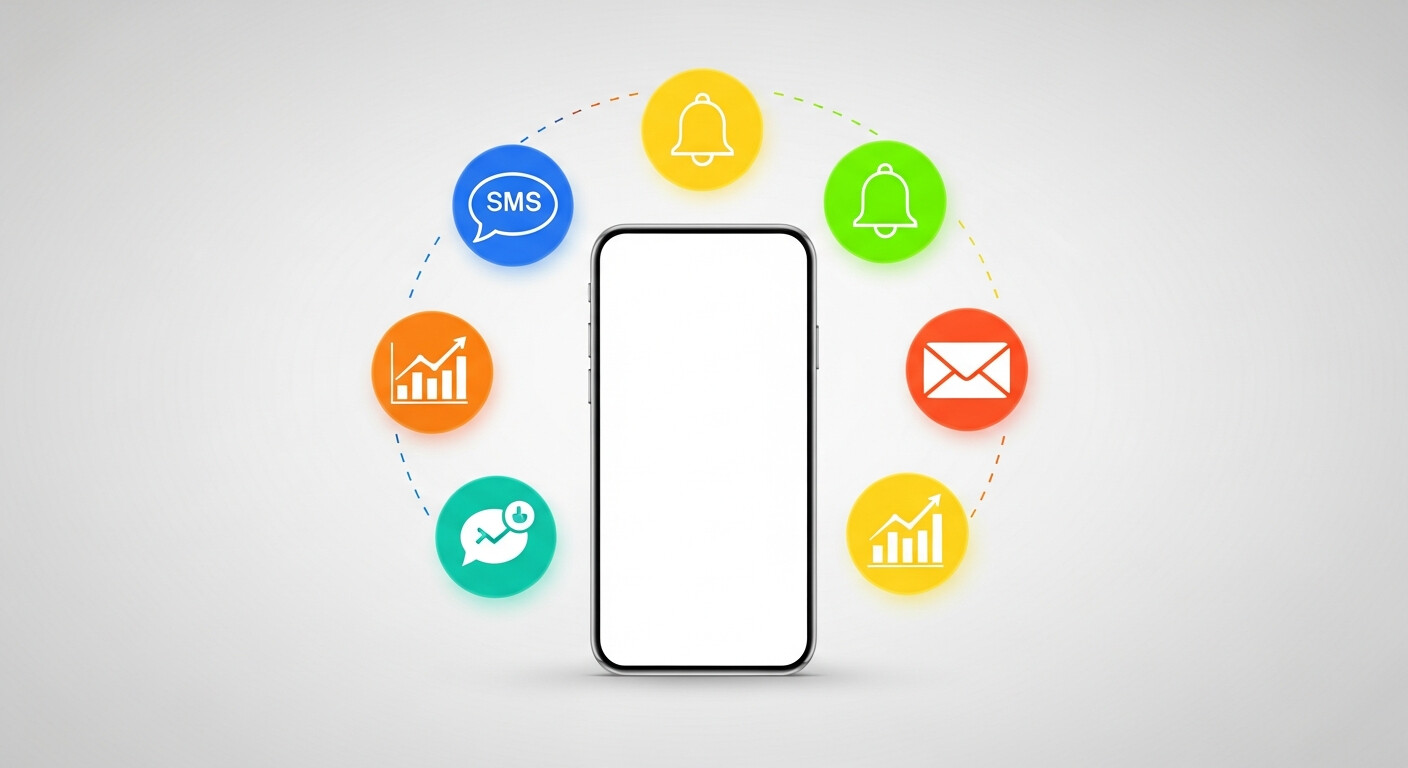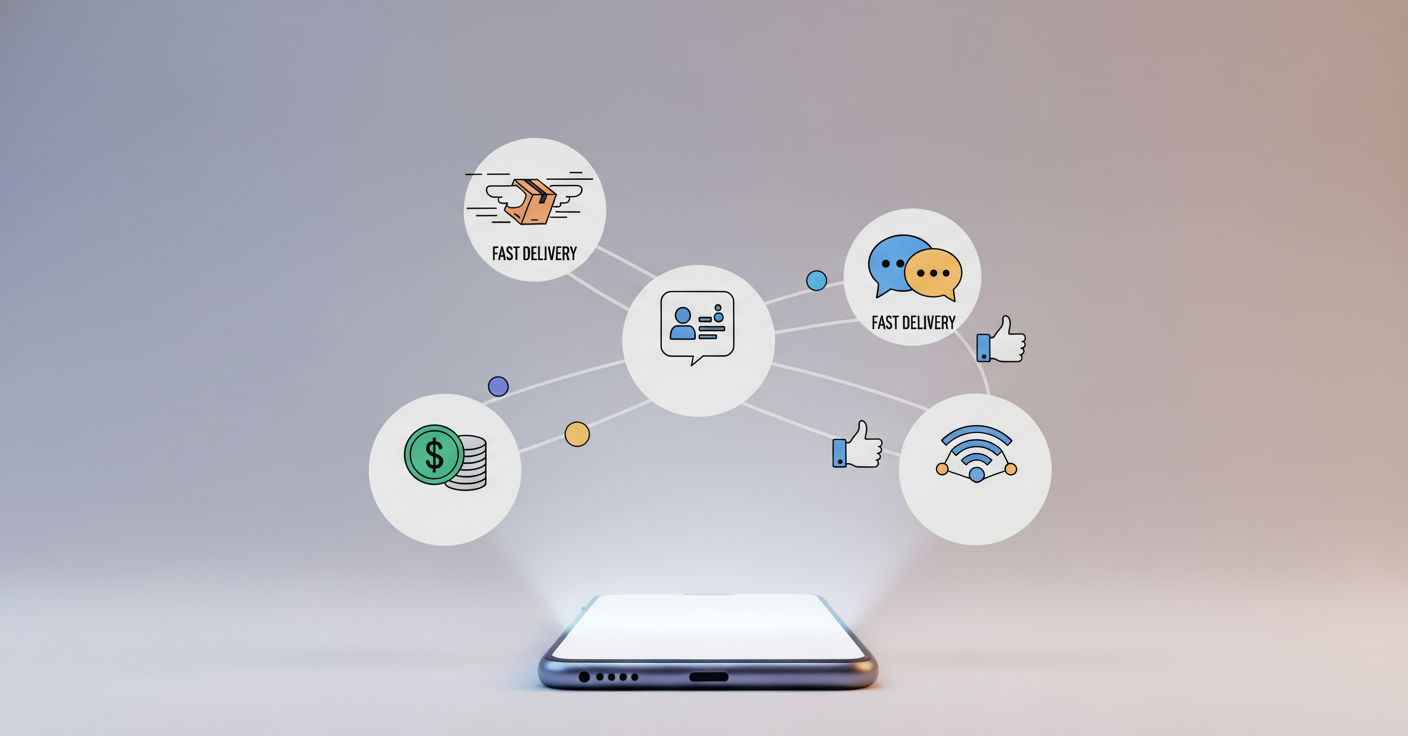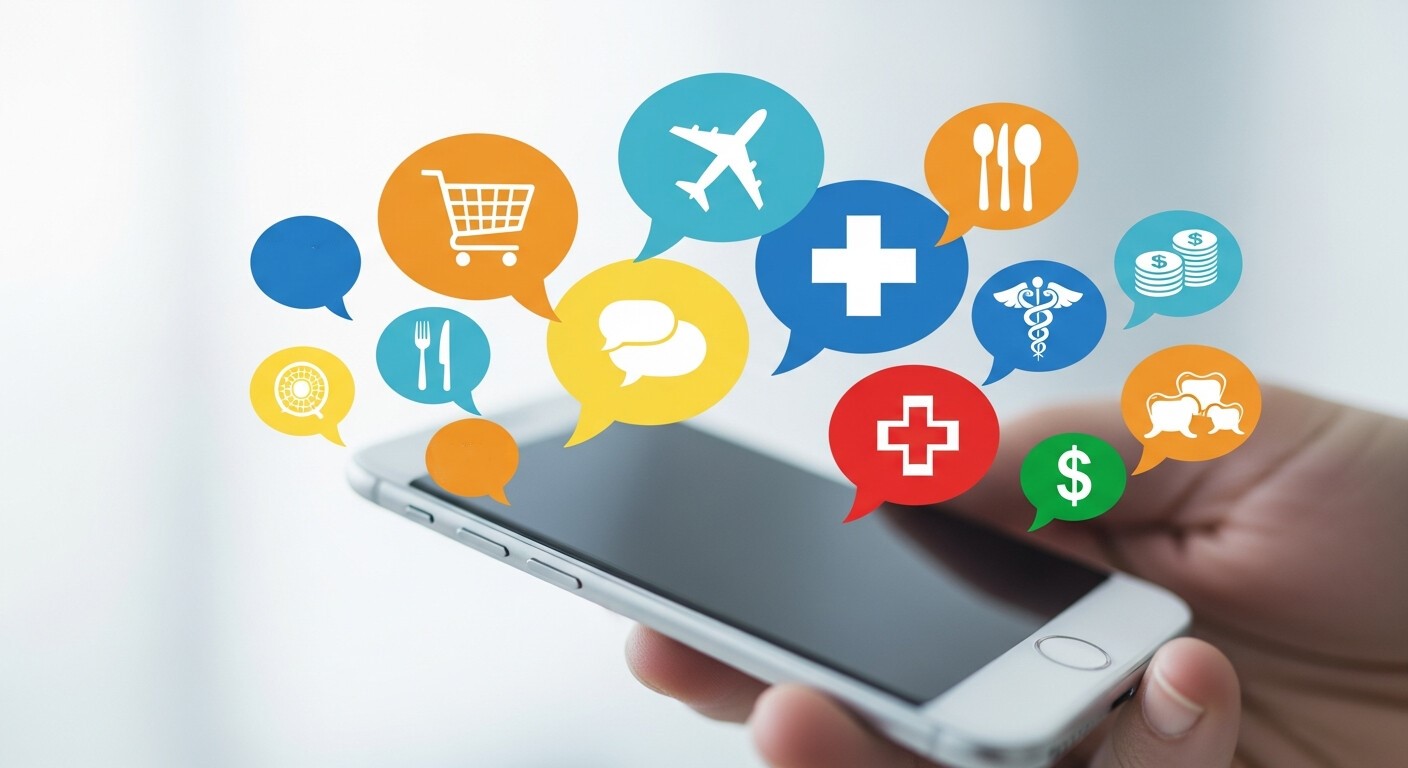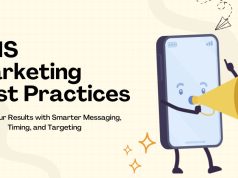Discover what does SMS marketing mean and how it helps businesses reach customers instantly. Learn its benefits, best practices, and industry strategies to boost engagement. Start SMS campaigns that drive results in today’s mobile-first world.
Understanding SMS Marketing Fundamentals

What is SMS Marketing
Text message marketing, AKA SMS marketing is a permission-based marketing process that allows businesses to send text messages to customers who have opted in to receive text communications. These can be prolific messages like promotions, appointment reminders, order updates, or just useful details about products and services.
At its heart SMS marketing is about consent. Customers must opt‐in to receiving text messages from your business. This opt-in approach results in an extremely engaged audience that has already demonstrated an interest in your brand.
Key Components of SMS Marketing
- Short Codes and Long Codes: Corporations use special phone numbers to send their texts. Short codes consist of 5-6 digits which are easy to memorize and long codes are regular 10-digit telephone numbers.
- Keywords: These are the words that customers text to your number in order to opt into your messaging program. For instance, sending a text reading “DEALS” to 12345 could sign someone up for your promotional messages.
- Content of Message: In an SMS message, you only have 160 characters, each word needs to count. This limitation means marketers have to write brief and powerful messages that go straight into the subject.
- Compliance: SMS marketing is highly regulated. Otherwise companies could be penalized, as per rules laid out by the Telephone Consumer Protection Act (TCPA) among other regulations.
Types of SMS Marketing Messages

Promotional Messages
Promotional messages are a cornerstone of SMS marketing and are designed to drive immediate sales or highlight special offers. These messages might include announcements about flash sales, exclusive discounts, seasonal promotions, or the launch of new products. What Does SMS Marketing Mean in this context? It means using concise, attention-grabbing text to create urgency and encourage action—prompting customers to click a link, make a purchase, or visit your store. The most effective promotional messages are personalized, relevant, and time-sensitive, ensuring recipients feel compelled to engage without feeling spammed. For tips on boosting conversions, check out SMS Marketing 10 Proven Promotion Strategies.
Transactional Messages
Transactional SMS messages provide customers with important updates related to their accounts, purchases, or appointments. This includes order confirmations, shipping notifications, subscription renewals, or appointment reminders. What Does SMS Marketing Mean for businesses using transactional messages? It means leveraging SMS as a trusted communication channel to deliver critical information quickly and reliably. Unlike promotional texts, transactional messages are expected and welcomed by recipients, which results in significantly higher open rates. They also enhance the customer experience by keeping people informed and reducing uncertainty about their transactions.
Informational Messages
Informational messages focus on delivering value without directly selling a product. These could include industry insights, tips, company news, or educational content that positions your brand as an authority in your field. What Does SMS Marketing Mean when it comes to informational messaging? It means using text messaging as a tool to build trust, nurture relationships, and provide meaningful content that keeps your audience engaged. Businesses can explore SMS Marketing Templates for Conversions to create engaging informational content.
Benefits of SMS Marketing

SMS Marketing vs Other Marketing Channels
- Short Reach and Low Open Rates
The open rate for text messages is 98 percent, and most are read within three minutes of being sent. This instant accessibility makes SMS ideal for time-critical promotions or updates. - Direct Communication Channel
SMS: No need to clutter up someone’s email inbox or social feeds. Your message is instantly on the customer’s phone screen, and pretty hard to ignore. - Cost-Effective Marketing
SMS marketing is much cheaper than conventional advertising methods. Message costs are generally. combined with high engagement squarely in favour of the advertiser. - Personalization Opportunities
Today’s SMS platforms enable companies to tailor messages to customer information, purchase history and preferences. Such personalization leads to more relevant and engaging feed items. - Mobile-First Approach
Now that the world has gone mobile, and the vast majority of internet browsing on mobile-, SMS marketing perfectly connects with people and the way we get our information nowadays. It gets in front of customers exactly where they already are.
How SMS Marketing Works
Building Your Subscriber List
The process starts with gathering phone numbers of interested consumers. This can happen through website opt-in forms, in-store sign-ups, social media campaigns, QR codes, contests, and giveaways. For a step-by-step approach, see SMS Marketing List Building Guide. This can happen through:
- Website opt-in forms
- In-store sign-ups
- Social media campaigns
- QR codes on printed materials
- Contests and giveaways
Message Creation and Scheduling
When you have subscribers, you can send different messages to targeted segments of your audience. Many SMS platforms give you the option of scheduling messages for an ideal delivery time.
Delivery and Tracking
SMS is transmitted by SMS gateway providers who take care of the technical parts of sending out a message. You can monitor data such as delivery rates, open rates and click-through rates to measure the effectiveness of a campaign.
Managing Responses
It is two-ways, which means when you message your customers, you give them an option of replying and this creates customer service and engagement opportunities. It can be used to tackle fundamental questions automatically, while more complicated problems could go to human agents.
SMS Marketing Best Practices
- Timing Your Messages
When is your audience most likely to have availability to read and respond to messages? No early morning or late evening messages, unless it matches your business strategy. - Frequency Management
Strive for a balance between staying top-of-mind while also not causing message fatigue. For most businesses, 2-4 messages a month works, but it depends on your industry and what your audience wants. - Clear Call-to-Actions
Every message should have a clear reason and next step to take. Whether you’d like customers to come to your store, buy something, or visit your website, make the action you want them to make clear. - Compliance and Legal Considerations
Never message any one without asking permission first. Include easy-to-find opt-out process in every message, and thoroughly document customer permission.
The Best SMS Marketing Opportunities by Industry

Retail and E-commerce
Stores are sending out SMS to promote sales, offer exclusives, and give abandoned cart reminders. Because of the instant nature of text messages, leads make fast purchasing decisions.
Healthcare
Physicians’ practices use SMS for appointment reminders, prescription alerts, and health coaching. SMS is action-oriented, helps prevent no-shows and encourages patient communication.
Restaurants
Restaurants use SMS to send deals and promotions, new menu items, and updates on an order. Restaurant marketing is so local, though, that SMS is especially powerful.
Financial Services
Banks and financial services companies do employ SMS for account alerts, fraud notifications, and promotions. SMS is so secure and so immediate, why not use it for financial messages?
Measuring SMS Marketing Success
Key Metrics to Track
- Delivery Rate – The rate at which messages were successfully delivered to its recipients
- Open Rate – The rate at which messages read and opened
- Click-Through Rate – The proportion of your recipients who click the links in your messages
- Conversion Rate – The percentage of your readers who perform a specific action after reading your message
- Opt-Out Rate – The ratio of subscribers that remove themselves from your messages
Tools and Analytics
What Does SMS Marketing Mean when it comes to tracking performance? It means leveraging advanced tools and analytics to measure the effectiveness of every message you send. Most modern SMS marketing platforms offer robust reporting features that allow businesses to monitor key performance indicators (KPIs) such as delivery rates, open rates, click-through rates, conversion rates, and opt-out rates in real time. These insights help you understand exactly how your audience is interacting with your campaigns and identify opportunities for improvement.
By analyzing this data, marketers can refine message content, timing, and targeting to maximize engagement and ROI. Some platforms even provide predictive analytics, showing which segments are most likely to respond to specific offers, or suggesting optimal times for sending messages based on past behavior. In essence, understanding what does SMS marketing mean in practice involves not just sending texts, but using analytics to create smarter, data-driven campaigns that continually improve over time.
Tried & True: Blunders to Dodge with SMS Marketing
- Sending Too Many Messages
Flooding your subscribers with daily emails results in poor unsubscribe rates and a bad brand image. When it comes to SMS marketing, quality beats quantity. - Ignoring Compliance Rules
Not complying with laws around SMS marketing can bring about very heavy fines and legal trouble. Compliance should always come before hard sale tactics. - Generic, Irrelevant Messages
Sending the one and only message to all the contacts does not work well. Customize messages by using customer data and preferences. - Poor Timing
The worst thing of all is that sending messages when you shouldn’t can annoy customers and ruin your brand reputation. Note the time zone and the customer’s schedule when designing a campaign.
Getting Started with SMS Marketing
Choosing an SMS Platform
Choosing the right SMS platform is a critical first step for any business exploring what SMS marketing can do. What Does SMS Marketing Mean in practical terms? It means selecting a tool that not only sends messages but also provides the capabilities to automate campaigns, segment audiences, and track analytics in real time. A robust platform allows you to schedule messages for optimal delivery, personalize content based on customer data, and integrate seamlessly with your existing customer relationship management (CRM) system. When selecting a platform, consider features like two-way messaging, reporting dashboards, and compliance support, as these functions can significantly impact the success of your campaigns and overall return on investment.
Creating Your First Campaign
Compliance is the foundation of responsible SMS marketing. What Does SMS Marketing Mean when it comes to legal considerations? It means implementing clear workflows for consent, subscription management, and record-keeping to protect your business from potential legal penalties. Every SMS program should include opt-in confirmation, easy opt-out options, and thorough documentation of subscriber consent. By establishing these processes upfront, you not only comply with regulations like the TCPA but also build trust with your audience. Customers are more likely to engage with your messages when they know their privacy is respected, creating a solid base for long-term marketing success.
Building Compliance Processes
Compliance is the foundation of responsible SMS marketing. What Does SMS Marketing Mean when it comes to legal considerations? It means implementing clear workflows for consent, subscription management, and record-keeping to protect your business from potential legal penalties. Every SMS program should include opt-in confirmation, easy opt-out options, and thorough documentation of subscriber consent. By establishing these processes upfront, you not only comply with regulations like the TCPA but also build trust with your audience. Customers are more likely to engage with your messages when they know their privacy is respected, creating a solid base for long-term marketing success.
The Future of SMS Marketing
The future of SMS marketing is evolving rapidly as both technology and consumer behavior continue to shift. What Does SMS Marketing Mean for forward-thinking businesses? It means moving beyond simple text messages to more interactive, personalized, and integrated experiences. The next generation of messaging, known as RCS (Rich Communication Services), will enable brands to send multimedia messages with images, videos, buttons, and interactive features—creating a far more engaging experience than traditional SMS.
Artificial intelligence (AI) will also play a key role in shaping the future of SMS marketing. AI-powered platforms can analyze customer behavior, predict the best times to send messages, and craft personalized content automatically, ensuring that every message resonates with the recipient.
Moreover, SMS marketing will become increasingly connected with other marketing channels, including email, social media, and push notifications, to create seamless, omnichannel customer journeys. Businesses that adopt these technologies and refine their SMS strategies now will gain a significant competitive advantage, as they can reach customers with the right message at the right time, on the device they use most.
In short, understanding what does SMS marketing mean today is not just about sending texts—it’s about preparing for a future where SMS is a central, intelligent, and fully integrated part of your marketing ecosystem.
Ready to Begin Your SMS Marketing Venture?
There’s no doubt that SMS marketing is an efficient and straightforward way of getting in touch with customers that can lead to real business results. Due to its high engagement, instantaneous delivery and cost-effective nature, it is an integral participant of modern marketing strategies.
Good SMS marketing is about knowing your audience, honoring their wishes, and providing real value with every message. Begin small, concentrate on compliance and slowly scale up your program as you learn what works best for your business.
The mobile-first era presents boundless opportunities for companies that will serve customers where they are. SMS marketing is the bridge connecting your brand with your customers’ most personal device — use it with respect!
Understanding what SMS marketing means is essential for modern outreach, just as maintaining a strong brand reputation is key to ensuring successful product promotion across all channels.
Frequently Asked Questions (FAQ)
What does SMS marketing mean for my business?
SMS marketing means having a direct and highly effective channel to communicate with your customers via text. It allows businesses to send timely updates, promotions, and personalized content to an audience that has already opted in, creating better engagement and higher conversion rates.
Is SMS marketing legal?
Yes, SMS marketing is legal, but it is regulated. Businesses must comply with rules such as the Telephone Consumer Protection Act (TCPA) and obtain customer consent before sending messages. Including an opt-out option in every message is also required.
How often should I send SMS messages?
Frequency depends on your audience and industry. Most businesses find 2–4 messages per month effective, balancing engagement without causing message fatigue. Testing different frequencies and analyzing engagement metrics can help determine the best approach.
Can SMS marketing work for small businesses?
Absolutely. SMS marketing is cost-effective, easy to implement, and can drive immediate results. Small businesses, especially in retail, restaurants, or local services, can use SMS to promote offers, remind customers of appointments, and drive in-store traffic.
How can I integrate SMS with other marketing strategies?
SMS works best when combined with email, social media, or push notifications. For example, use SMS to remind subscribers of a sale mentioned in an email or provide exclusive access to promotions advertised on social media. This creates a seamless omnichannel experience.







